Joint statement on the decision to ban puberty blockers for trans youth in the UK
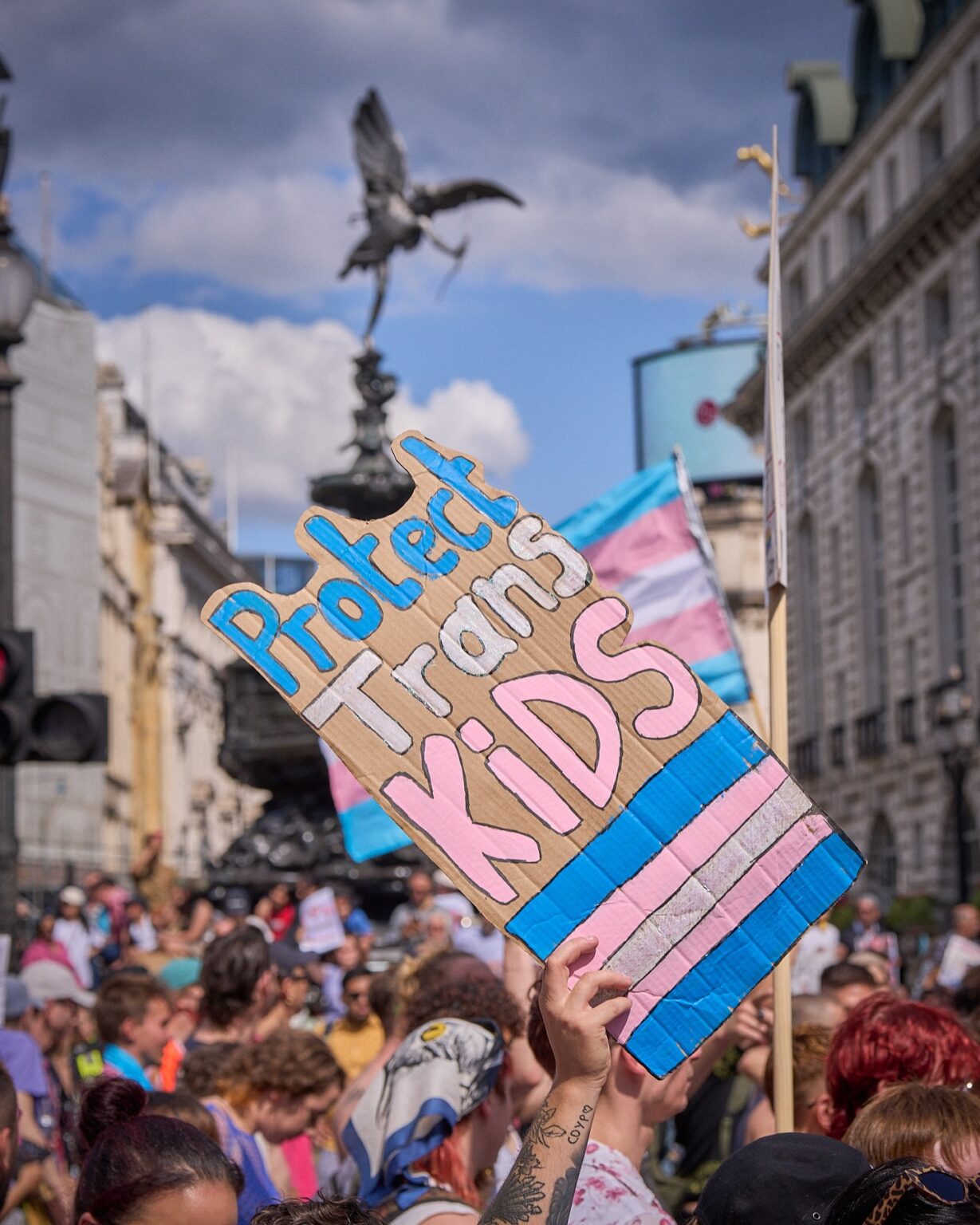
The recent decision to indefinitely ban the private prescription of puberty blockers for trans youth in the UK marks a profoundly troubling development in the ongoing struggle for the rights of trans people and access to necessary, life-saving and evidence-based healthcare.
In the UK, where no form of trans-specific healthcare is currently available for minors through the NHS and waiting lists have reached six years, the government’s decision to ban the private prescription of puberty blockers for trans youth constitutes a de facto ban on puberty blockers. This decision, which overrides years of established medical guidance and expertise, is deeply political, rooted in a divisive public discourse and misinformation rather than the recommendations of leading medical authorities. It threatens the well-being of vulnerable trans youth, whose lives depend on timely, supportive, and individualised healthcare.
ILGA-Europe, IPPF European Network, TGEU, IGLYO, and The Kite Trust call on the UK government to reconsider this harmful decision and to engage meaningfully with both the medical and scientific community and civil society groups representing the interests of trans youth and trans adults.
The framing and justification for this ban have leaned heavily on a polarised and often misleading public narrative about trans identities and related trans healthcare and epistemologically, and methodologically questionable studies about trans identities and trans-specific healthcare. Despite claims of prioritising child safety, this decision disregards the consensus of medical professionals and organisations such as the World Professional Association for Transgender Health (WPATH) and the Endocrine Society’s Clinical Practice Guideline, which have long endorsed puberty blockers as a safe and reversible option for managing gender dysphoria in minors. These treatments allow young people experiencing distress with their assigned gender to pause puberty, giving them time to better understand their needs and identity, without the added pressure of physical changes brought on by puberty.[1]
The political instrumentalisation of healthcare for trans minors has become a rallying point for anti-trans rhetoric, which often conflates all trans-specific healthcare with irreversible medical interventions. This characterisation is not only inaccurate but also deeply harmful. Puberty blockers do not lead to permanent medical transition[2] – they are a widely used and reversible treatment prescribed for various conditions, including precocious puberty.[3] By banning them for trans youth specifically, the UK government is singling out a vulnerable group for discriminatory and harmful treatment based on ideology rather than evidence.
Misinformation about the nature and effects of puberty blockers has played a significant role in shaping public opinion and policy. Opponents of trans-specific healthcare frequently cite exaggerated or unfounded claims about the risks of these treatments, ignoring the robust body of research demonstrating their safety and efficacy. Long-term studies show that puberty blockers and other trans-specific healthcare significantly reduce rates of depression and suicidality among trans youth[4] —outcomes that align with broader understandings of the critical importance of affirming care for marginalised populations.
Expert voices, including paediatric endocrinologists, psychologists, and trans health specialists, have been sidelined in favour of rhetoric that frames trans-specific healthcare as controversial. This erasure of medical expertise undermines the principles of patient-centred care and puts the health of trans youth at risk. The decision to ban puberty blockers ignores the individualised, case-by-case assessments that qualified professionals conduct before prescribing such treatments,[5] opting instead for an unyielding prohibition that strips both doctors and families of agency.
The consequences of this ban will be devastating. For many trans youth, the ability to access puberty blockers represents a lifeline. Denying them this care will force young people to undergo the changes of puberty associated with their assigned gender, exacerbating gender dysphoria and increasing risks of mental health struggles, including anxiety, depression, and suicidal tendencies. By removing a critical tool for early intervention, this decision condemns trans youth to unnecessary suffering and places an already marginalised group at greater risk of harm. Furthermore, this policy undermines the trust between trans individuals and the healthcare system. Families seeking support for their children will face increased barriers, uncertainty, and stigma, while healthcare providers may find themselves unable to offer the care they know to be best for their patients. These ripple effects extend beyond trans youth, chilling the broader provision of trans-specific healthcare and reinforcing a climate of fear and hostility.
Trans children and young people deserve safety, understanding, and access to the same standard of care afforded to their peers. Decisions about their healthcare should be guided by medical evidence and the expertise of trained professionals, not by political agendas. The indefinite ban on puberty blockers represents a failure to prioritise the rights and well-being of trans youth, and it sets a dangerous precedent for further erosion of the rights of LGBTI persons in the UK.
We urge policymakers to reconsider this harmful decision and to engage meaningfully with both the medical and scientific community and civil society groups representing the interests of trans youth and trans adults. Upholding the dignity and humanity of trans youth requires a commitment to evidence-based healthcare, free from the distortions of ideology and misinformation. Only by centering the voices and needs of trans youth can we hope to build a society that values and protects all its members.
Signatories
- ILGA-Europe
- IPPF European Network
- TGEU
- IGLYO
- The Kite Trust
[1] Cal Horton, Experiences of puberty and puberty blockers: Insights from trans children, trans adolescents, and their parents, Vol. 39(1), Journal of Adolescent Research, available at: https://journals.sagepub.com/doi/full/10.1177/07435584221100591v.
[2] Hannema et al, Endocrine management of transgender and gender diverse adolescents: expert opinion of the ESPE Working Group on Gender Incongruence and the Endo-ERN main thematic group on Sexual Development and Maturation, available at: https://pubmed.ncbi.nlm.nih.gov/39622214/.
[3] Giordano & Holm, Is puberty
delaying treatment ‘experimental treatment’?, Vol 21(2) International Journal of Transgender Health (2020).
[4] Van der Miesen et al, Psychological Functioning in Transgender Adolescents Before and After Gender-Affirmative Care Compared with Cisgender General Population Peers, Vol 66(6) Journal of Adolescent Health (2020); Olson et al, Mental Health of Transgender Children Who Are Supported in Their Identities, Vol 137(3) Pediatrics (2016); Nath, R., Matthews, D.D., DeChants, J.P., Hobaica, S., Clark, C.M., Taylor, A.B., Muñoz, G. (2024). 2024 U.S. National Survey on the Mental Health of LGBTQ+ Young People. West Hollywood, California: The Trevor Project. www.thetrevorproject.org/survey-2024.
[5] Cass, Hilary (2024), Independent review of gender identity services for children and young people: Final report, pp. 168-169, available at: https://cass.independent-review.uk/home/publications/final-report/
JOINT STATEMENT ON HUMAN RIGHTS VIOLATIONS IN ITALY
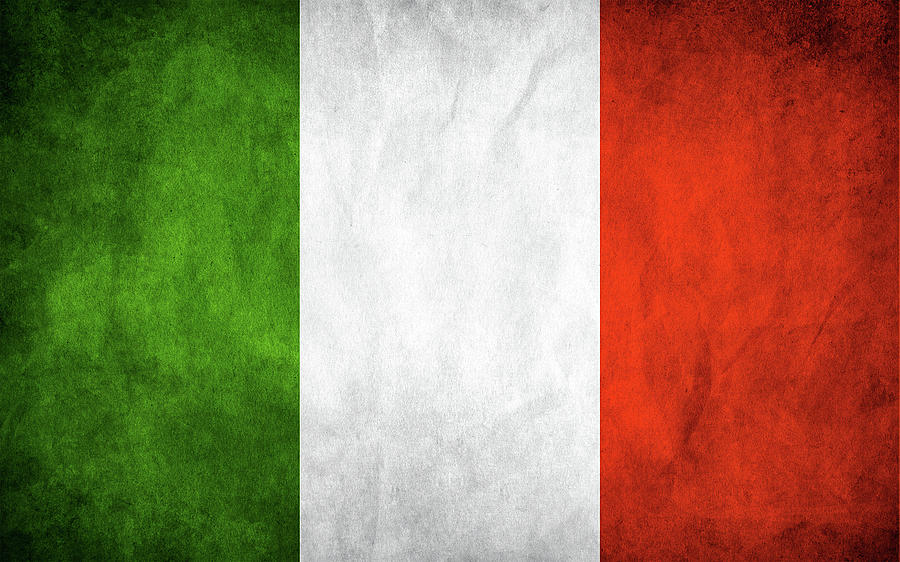
Today, November 20, we celebrate UN World Children’s Day, and feel compelled to draw attention to the recent developments in Italy where some children no longer have their parents recognised.
Earlier this year, Italy’s Minister of Interior of Meloni’s government announced that registrars should no longer register the children of same-sex couples. The government’s intimidation resulted in a series of administrative and legal attacks against LGBTIQ* families throughout the country. In Padua, at least 33 mothers of 37 children received notification that their child(ren)’s birth certificates, in which two women’s names appeared, were illegitimate. On Tuesday 14 November 2023, the first hearings possibly leading to the retroactive removal of the non-biological mothers’ names from their respective birth certificates, effectively erasing the legal motherhood of the non-biological mothers, took place before the Court of Padua. The public prosecutor’s office and the lawyer of the mothers in question, claim that removing one mother is unconstitutional.
In many cases, the deregistration comes after many years, and the children thus ‘lose’ one mother, and sometimes their family name, from one day to the other. The deregistration of a parent marks a clear breach of human rights, with significant negative impacts on the well-being and day-to-day lives of the parents and the children, and is clearly not in the best interests of the child.
These attacks are possible due to the fact that Italy lacks a national law ensuring recognition at birth or through the adoption of the children of same-sex couples. A few courageous mayors have in the past agreed to register the birth certificates of children with two mothers or transcribe the birth certificates of children with two fathers to ensure the children are not exposed to discrimination. The order to deregister one of the parents ultimately amounts to orphanage by decree, instigated by the prosecution and in line with the Meloni government’s clear stance of not recognising the parental rights of LGBTIQ* individuals.
This is a reminder that only legal protections such as adoption rights for same-sex couples can ensure that the fundamental rights and the best interest of all children to have their parents recognised are guaranteed.
These attacks on rainbow families are happening in the context of broader attacks on the LGBTIQ* community in Italy and their fundamental rights by the government. Similar to the guidelines to deregister parents, schools have been called upon to no longer accept the gender identity of trans children in education, and a draft law proposes to withdraw the possibility of seeking asylum based on prosecution based on sexual orientation and gender identity. LGBTIQ*-phobic hate speech, also from politicians, has been on the rise. The Meloni government is proposing to criminalise surrogacy arrangements made by Italian couples abroad, another move that might leave children without parents and thereby extremely vulnerable.
The European Court of Human Rights clearly ruled that states need to establish a mechanism to allow for recognition of the parent–child relationship for non-genetic parents, such as through adoption, and that children should not be blamed for their parents’ decisions, including regarding conception. Children have an undeniable right to the protection of their private and family life. World Children’s Day serves as a reminder of our collective responsibility to ensure every child’s right to a stable and loving family environment.
We condemn the recent attacks on rainbow families and urge the Italian government to reconsider the current anti-LGBTIQ* actions and decisions. All families need to be recognised and respected, without discrimination, in order to protect the best interest of the child and make sure they are not exposed to discrimination.
- NELFA – Network of European LGBTIQ* Families Associations
- Famiglie Arcobaleno, ItalyArcigay Nazionale, Italy
- ILGA-Europe
- EL*C – Eurocentralasian Lesbian* Community
- Društvo kulturno, informacijsko in svetovalno središče
- Legebitra, Slovenia
- Familles-arc-en-ciel/Regenbogenfamilien/famiglie_arcobaleno/famiglias_a’artg, Switzerland
- Sateenkaariperheet ry / Rainbow Families Association Finland
- ILGA World
Statement: Kyrgyzstan targets LGBTI communities in a new law
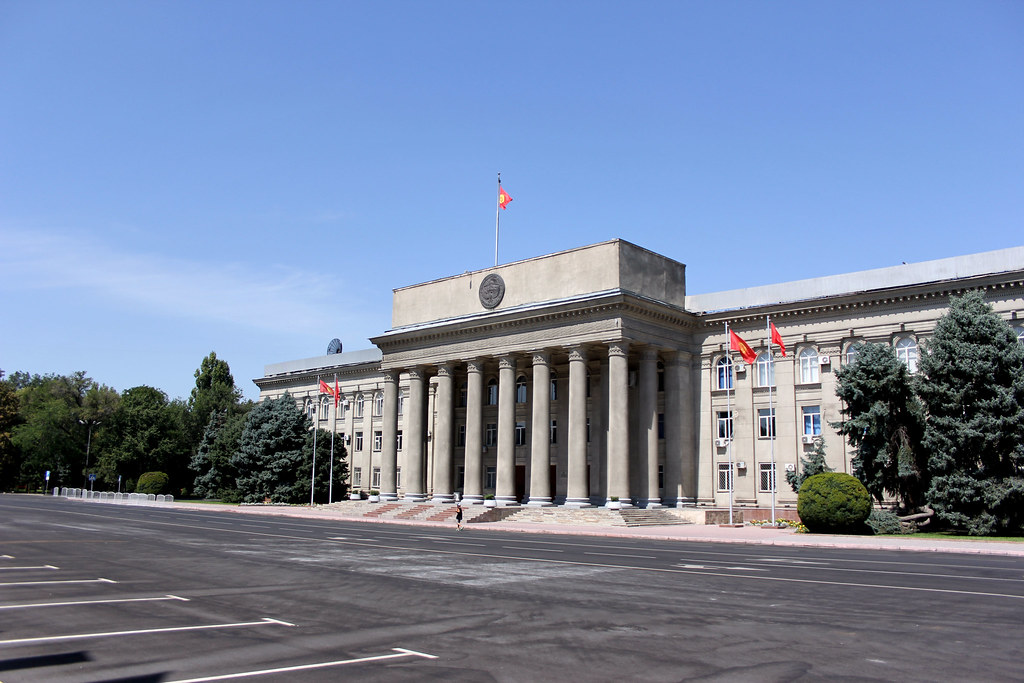
ILGA-Europe expresses solidarity and stands with LGBTI organisations and communities in Kyrgyzstan as the country’s President signed into law a discriminatory provision banning dissemination of information about LGBTI people, rights, and identities among minors.
We firmly assert that this specific provision in the new legislation does not protect anybody; instead, it deprives LGBTI children from access to services and support that they need to thrive and puts them at risk of harassment, violence and a generally hostile environment. The damaging effects of similar Russian legislation on the lives of children, as well as on the lived realities of LGBTI people in general, are well-documented.
Information about LGBTI people and identities is listed in the new law on a par with violent or pornographic content, and the adoption and discussion of this law unfolded in parallel with smear campaigns against LGBTI organisations, activists, and communities in Kyrgyzstan. This confirms that the new law is a deliberate attempt to stigmatise LGBTI people and to fuse LGBTI people and identities with abuse of children and exposing children to harm.
Finally, just like previously in Russia, Poland and Hungary, this legislation comes along with other anti-democratic developments, such as the draft law on media and the attempts to outlaw foreign funding, and is a precursor of other attempts to limit the space of independent civil society and media. It sounds an alarm for the entire civil society in Kyrgyzstan and its partner and ally organisations and demands a united front across different parts of the country’s civil society as well as international supporters, funders, and allies.
Together with our members and partners, ILGA-Europe will continue to advocate for the rights of LGBTI people in Kyrgyzstan and will be rallying support and solidarity for LGBTI organisations and their allies in the country.
Now that LGBTI organisations in Kyrgyzstan need to take their time to assess the situation and plan ahead, we encourage all supporters and allies to not rush to action but follow the lead of the LGBTI organisations in the country. It is also a moment for all of us to consider where our positions and resources could be most helpful, immediately and in the long term. Be it documenting the effects of the law on the rights and freedoms of LGBTI people and their allies, advocating for its repeal, offering security support, building solidarity across the civil society, or otherwise supporting different communities to counter the gaps and risks created by this law.
Background
On 15 August, Kyrgyzstan enacted a new law that aims to restrict freedom of expression and access to information about LGBTI people, identities, rights, and lives.
Formally, the law seeks to ban dissemination of harmful information among minors, while labelling as harmful also information that “denounces family and traditional societal values, promotes non-traditional sexual relations and initiates disrespect towards parents or other family members.” This language echoes the ‘anti-propaganda’ laws that are in place in Russia and Hungary.
The law comes into force on 30 August, 15 days after its publication.
The official title of the law is “On introducing amendments to several legal acts of the Kyrgyz Republic”, and it amends the Code of Misdemeanors, the law “On measures to prevent harm to children’s health, physical, intellectual, mental, spiritual and moral development in the Kyrgyz Republic”, and the law “On Mass Media”.
Dissemination of “harmful information” will lead to fines of up to 5,000 soms (around 52 euro) for individuals, and up to 25,000 soms (around 260 euro) for legal entities.
This has been the third attempt to adopt a so-called ‘anti-propaganda’ law in Kyrgyzstan. The first two attempts in 2014 and 2015 did not succeed in writing discrimination against LGBTI people into law.
Attempts to target LGBTI people and the civil society in general are seen by activists in the country as attempts to distract public attention from major issues in Kyrgyzstan such as increasing electricity prices, shortage of irrigational water supplies due to drought across the country, and many other socio-economic problems that the Government of Kyrgyzstan has been struggling to address.
Children born intersex are at risk in most European countries. Here’s why
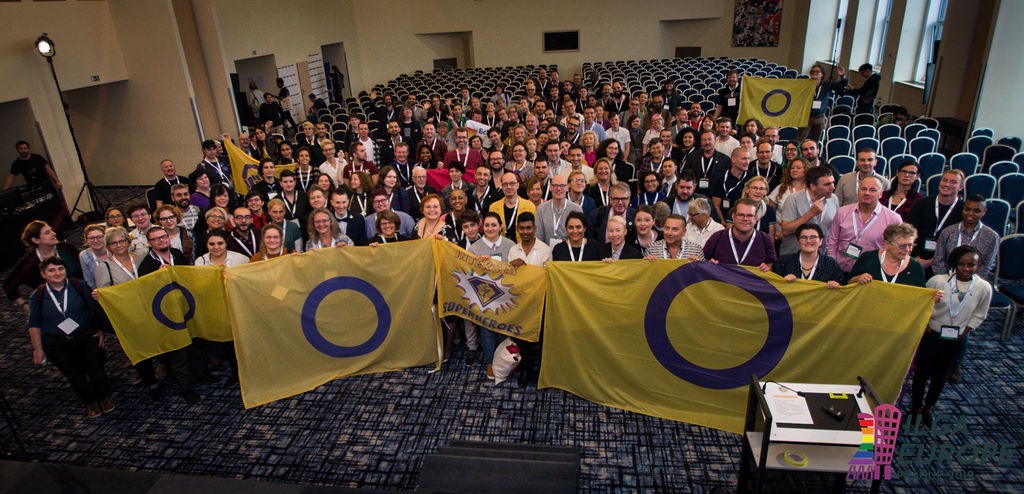
ILGA-Europe’s Rainbow Map of the legal situation for LGBTI people in Europe has a brand-new category: Intersex Bodily Integrity. It’s an essential expansion, because in across Europe and Central Asia, intersex people, and especially children, are still at risk.
In a world where the overwhelming majority of people and governments have limited or no understanding of variations of sex characteristics, the existence of intersex people and their bodies is barely recognised. But intersex people, that is people who are born with a reproductive or sexual anatomy different from what society expects of women or men’s bodies, make up around 1.7% of the population, which is comparable to the number of people born with red hair.
Because of this lack of understanding and acceptance, healthy intersex bodies are considered to be a medical problem that needs to be fixed by surgical, hormonal, other medical and sometimes psychological means. Intersex people face human rights violations, including having their bodily integrity compromised as infants, when doctors decide to ‘fix’ them.
Published in May 2022, ILGA-Europe’s Rainbow Map and Index annually ranks 49 European countries on their respective legal and policy practices for LGBTI people. Although ILGA-Europe has been monitoring intersex genital mutilation for some time now, and advocating on behalf of intersex people, this year we’ve introduced an Intersex Bodily Integrity category, expanding the issues that we monitored previously, covering the different issues the heading captures.
The Map finds that only Germany and Iceland have joined Malta, Portugal and some regions in Spain in banning medical interventions on intersex children before they are able to give informed consent. This means that in these countries and territories medical practitioners or other professionals are prohibited by law from conducting any kind of surgical or medical intervention on an intersex minor when the intervention has no medical necessity and can be avoided or postponed until the person can provide informed consent. However, in all cases, these bans have serious shortcomings, including that they include exceptions for certain conditions and do not provide universal protection.
Alongside, ILGA-Europe’s Annual Review of the Human Rights Situation of LGBTI people in Europe and Central Asia, found this year that Austria, Cyprus, Belgium and France have tabled prohibition proposals.
Not one of the 49 countries analysed in the Rainbow Europe Map have been awarded points for the other three criteria under Intersex bodily integrity category: universality of prohibition of medical interventions; existence of effective monitoring mechanisms; and access to justice for victims and reparations. Not even Malta, which occupies the top position on the Rainbow Europe Map for the seventh year in a row, has been awarded points.
However, according to OII Europe, the only intersex-led umbrella organisation working for human rights of intersex people in Europe, there are reasons for hope. “We are observing a growing will among European governments to combat violence against intersex persons”, said Dan Christian Ghattas, Executive Director of OII Europe in the launch of their 2021 Good Practice Map.
Intersex people exist in every country in the region and the world and they must be protected by legislation and policy makers so they can live freely, safely and equally in our societies. If governments take the right steps, the Rainbow Map can look differently for intersex people next year.
How Baby Sara and her mums have pushed forward the rights of all rainbow families across the EU
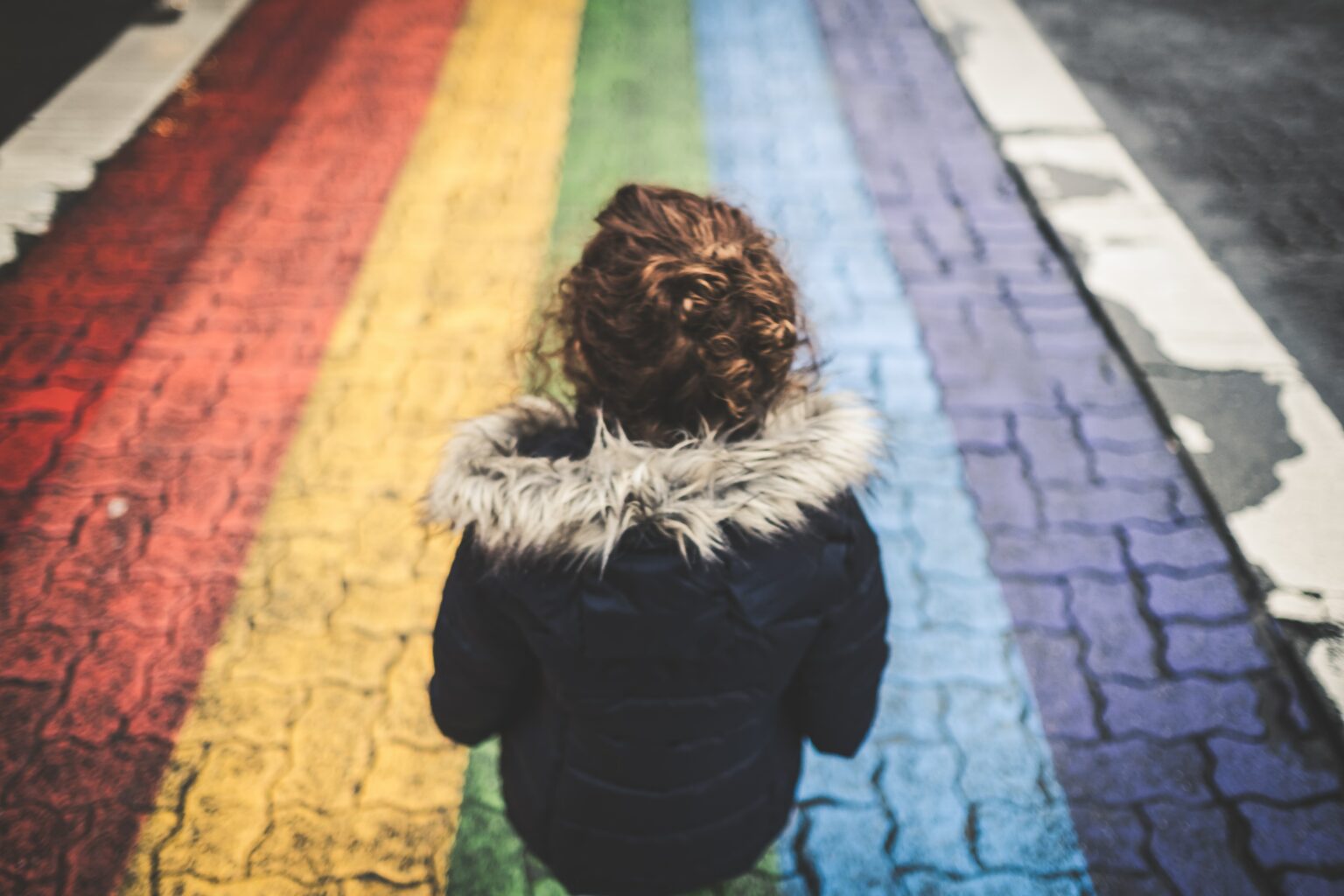
When an EU country recognises a child and its same-sex parents as a family, all EU countries should recognise them as such, so to guarantee their freedom of movement. This is what the EU’s top court ruled in December. But how this case has advanced LGBTI rights in the European Union and what comes next for rainbow families?
At the end of 2021, the Court of Justice of the European Union (CJEU) ruled that if one EU country recognises the child’s parental relationship, then all EU countries should do the same to guarantee the child its freedom of movement across the region, a right of all EU citizens.
The ‘Baby Sara’ case, as it has become known, will have a long-term impact on rainbow families in the EU. Born in Spain to a lesbian couple, baby Sara was denied citizenship there because neither of her Bulgarian and Gibraltarian mothers are of Spanish descendent. Under the British Nationality Act, Gibraltar-born parents cannot transfer UK citizenship.
So, Bulgaria was the one reasonable option left for the family. But same-sex unions are not recognised in Bulgaria and two persons of the same sex cannot be registered as the parents of a child. The Bulgarian authorities thereby refused to issue a birth certificate on which the parents are two women, choosing to not recognise a valid EU birth certificate from another member state. This left baby Sara at risk of statelessness. She had no identity documents and could not leave Spain.
After December’s CJEU judgment, the Bulgarian authorities are obliged to issue an identity card or a passport to baby Sara, a ruling that all other EU countries should recognise.
So, what are the real implications for rainbow families?
Following the CJEU ruling, Baby Sara and her mothers must be recognised as a family for the purposes of EU law, and must be able to enjoy freedom of movement in all EU countries. Freedom of movement, the right of persons to move and reside freely within the territory of EU member states, is a right of all EU citizens.
This is the first case where the CJEU has ruled on cross-border recognition of parental ties in rainbow families. It stated that it is against the fundamental rights of the child to be deprived of the familial ties established in an EU country when traveling in the EU. The family ties were not recognised in baby Sara’s birth cert application because the parents are two persons of the same sex.
The court also clarifies that national identity cannot be used as an argument to deny freedom of movement to rainbow families. This means that it does not undermine Bulgaria’s national identity to recognise parenthood established in Spain, another EU country, an argument often brought by those countries that do not recognise same-sex families.
In other words, the Court has not obliged Bulgaria to allow and recognise same-sex couples in its territory as the parents of a child. Rather, it simply requires Bulgaria to recognise the familial ties among the members of rainbow families — as these have been established in another EU country — when the family moves to its territory.
Finally, the ruling gave legal endorsement to European Commission’s President Ursula von der Leyen 2020 State of Union address, when she affirmed that “If you are parent in one country, you are parent in every country”.
Will the Baby Sara judgement immediately free up movement for rainbow families in the EU?
Implementation is the crucial part of any European court ruling, and often this is fraught with difficulties and time consuming.
The work of the CJEU has finished for now. The Bulgarian authorities must find a solution and decide on the type of identity documents for Sara. This might take time, and considering the situation of LGBTI rights in the country (Bulgaria is in 37th position out of 49 in our 2021 Rainbow Map of legal rights for LGBTI people in Europe), it may mean additional hurdles for baby Sara’s family and further litigation. For example, the Coman case, also related to same-sex unions and freedom of movement, has not been implemented by Romania after three years since the judgment.
However, if Bulgaria or other countries that do not recognise rainbow families refuse to implement the CJEU judgment, the European Commission can start infringement procedures, as these countries would breach EU law. If carried to their last step, this can mean financial penalties against Bulgaria.
So, it’s not as easy as a judgement being made and every country in the EU suddenly opening its borders to rainbow families. But, the world watched the judgement in the Baby Sara case closely, and it was a major step forward in the recognition of the children of same-sex parents across the European Union. We will be watching the implementation of this case very closely too, and will report on how it is progressing.
At the same time, the European Commission is in the process of working on new legislation on the EU-wide recognition of parenthood as well as on guidelines on ensuring freedom of movement for all. We will work hard to ensure that the judgment will be fully reflected and respected there, with the hope that one day soon, all rainbow families will be able to enjoy the rights that every other family in the EU take for granted.
Top EU Court Recognises Relationship of Same-sex Parents and their Children Under EU Law
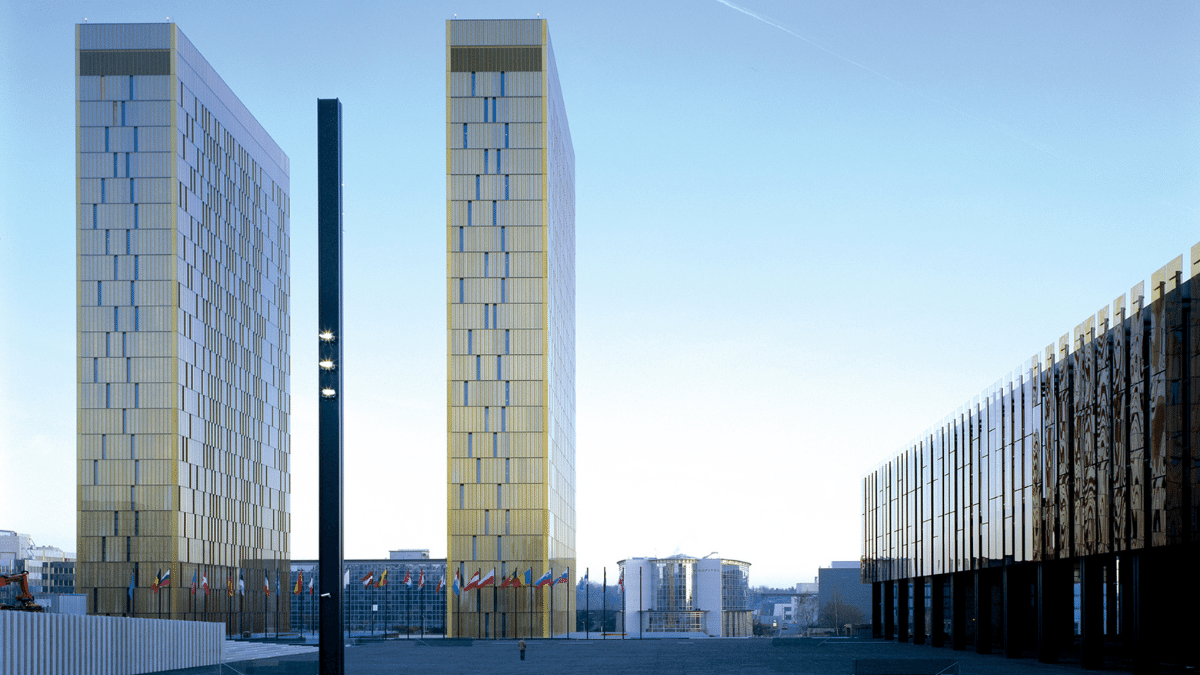
In a landmark judgement, the Court of Justice of the European Union has ruled that a child and its same-sex parents must be recognised as a family, the child should be issued a Bulgarian passport, and the family should have free movement in all Member States of the European Union.
Today, December 14, the Court of Justice of the European Union (CJEU) ruled that if one EU member state recognises a parental relationship between a child and its parents, then all member states should, in order to give the child it’s right to freedom of movement.
The case ‘Stolichna obshtina, rayon Pancharevo’ arose when a same sex couple were refused a birth certificate in Bulgaria for their infant daughter, who was born in Spain. The Bulgarian authorities asserted that the couple, one of whom is Bulgarian, could not be registered as parents on the child’s birth certificate, leaving the family in legal limbo.
Bulgarian born Kalina Ivanova* and Gibraltar-born Jane Jones* are the mothers of Sara, who was born in Spain in 2019. Under current Spanish law, the child could not acquire Spanish citizenship because neither Kalina or Jane is a Spanish citizen. The child was also denied British citizenship because Jane was born in Gibraltar of British descent, and under the British Nationality Act (1981), cannot transfer citizenship to her daughter.
Therefore, Kalina requested Bulgarian citizenship for their daughter. Bulgarian authorities rejected a request for citizenship of the child, the application, arguing that a child cannot have two mothers, and refused to issue a birth certificate in which the parents are two persons of the same sex.
Sara was therefore deprived of Bulgarian, and therefore European citizenship, and was at risk of statelessness. Currently, the child has no personal documents and cannot leave Spain, the country of the family’s habitual residence. The lack of documents restricts Sara’s access to education, healthcare, and social security in Spain.
In Bulgaria, same-sex marriages and same-sex registered partnerships are not recognised.
Today the CJEU ruled that it is contrary to the fundamental rights guaranteed by Articles 7 and 24 of the Charter for the child to be deprived of the relationship with one of her parents when exercising her right of free movement or for her exercise of that right to be made impossible or excessively difficult on the ground that her parents are of the same sex.
The ruling asserts that the Bulgarian authorities are obliged to issue an identity card or a passport to Baby Sara, which all other EU Member States are obliged to recognise.
Welcoming the ruling, Baby Sara’s parents said: “We are thrilled about the decision and cannot wait to get Sara her documentation and finally be able to see our families after more than two years. It is important for us to be a family, not only in Spain but in any country in Europe and finally it might happen. This is a long-awaited step ahead for us but also a huge step for all LGBT families in Bulgaria and Europe.
“Thank you so much to the LGBT Deystvie organisation in Bulgaria and especially to our legal representation, Denitsa Ivanova and Veneta Limberova for fighting for our family and countless others in our position. Thanks too all the people and organisations who supported us in this process: ILGA-Europe, NELFA, ACCEPT Romania and many others.”
According to Arpi Avetisyan, Head of Litigation at Europe’s leading LGBTI rights organisation, ILGA-Europe, which intervened in the case: “We are very pleased with CJEU’s judgment this morning. It gave legal endorsement to the EC President Ursula von der Leyen DL’s words, delivered during last year’s State of the Union address: ‘If you are a parent in one country, you are parent in every country’. The judgment has brought long-awaited clarification that parenthood established in one EU Member State cannot be discarded by another, under the pretence of protecting the “national identity”. This is a true testament to the EU being a union of equality and we look forward to seeing rainbow families enjoying their right to freedom of movement and other fundamental rights on equal footing to anyone else. It is important that the judgment is implemented imminently, not only for baby Sara and her family, but also for other families facing similar struggles across the EU.”
*Names have been changed.
For comment, contact Ana Muñoz media officer at ana@ilga-europe.org and +32493356055
European Court rules in favour of the best interest of the child in same-sex custody case
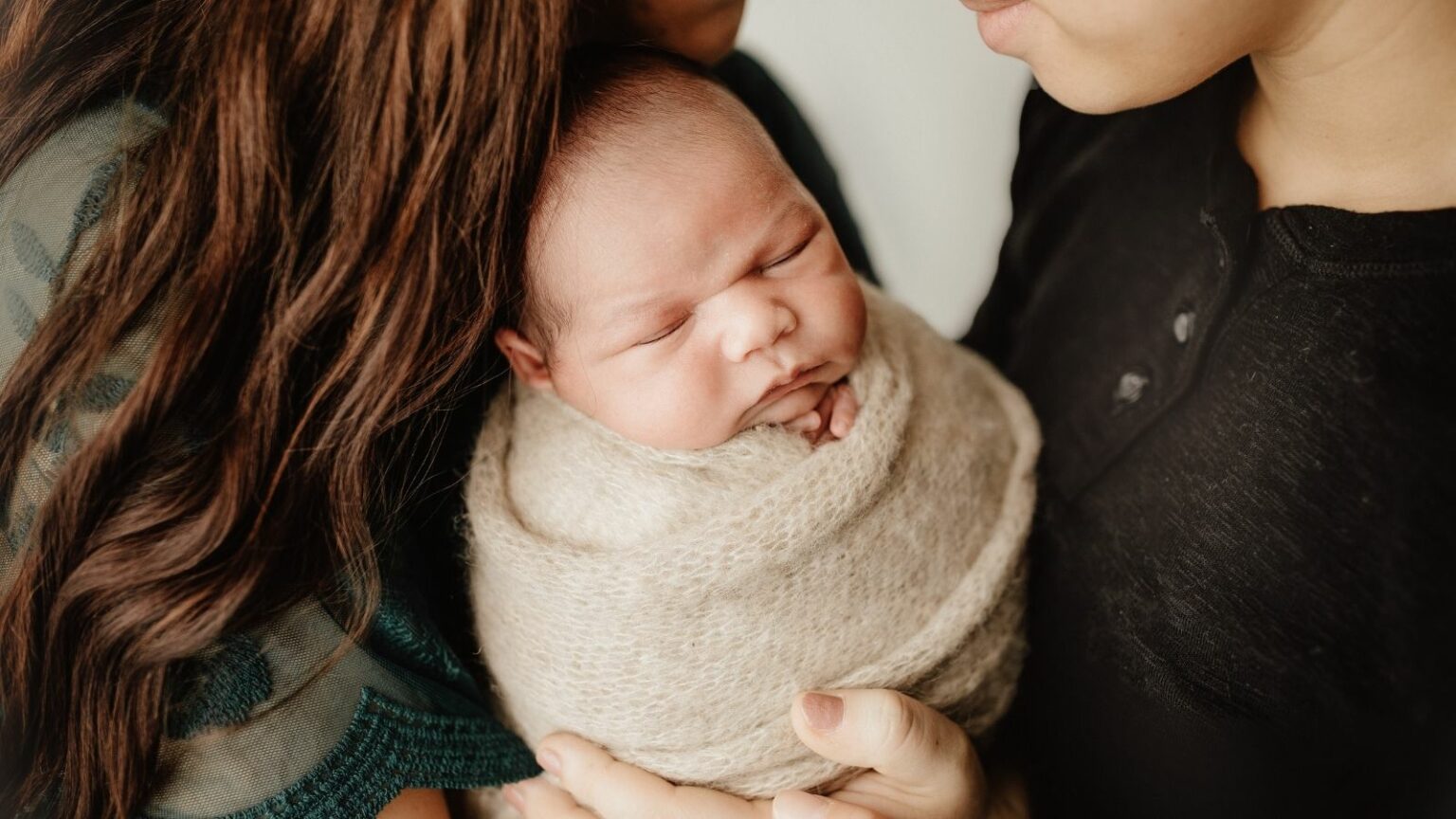
The European Court of Human rights has ruled that the refusing a mother custody of her youngest child on the grounds of her sexual orientation to be discriminatory and a violation of her right to private and family life.
In a judgement released today on the case of X. v Poland, the European Court of Human rights found the refusing a mother custody of her youngest child on the grounds of her sexual orientation as discriminatory and a violation of Article 14 (prohibition of discrimination) in conjunction with Article 8 (right to respect for private and family life) of the applicant.
The case concerned custody arrangements of applicant’s youngest child following her divorce. The main consideration of the courts was that the applicant, the mother of the child, was in a relationship with another woman. She alleged that the courts had acted in her former husband’s favour because of her same-sex relationship.
The Court found that there was “a difference in treatment between the applicant and any other parent wishing to have full custody of his or her child”. Moreover, the Court considered that the discriminatory reference to the importance of a male role model for the boy’s upbringing, which was one of the decisive factors in the dismissal of the applicant’s requests for custody, had outweighed the other arguments: child’s young age, strong bond with the applicant and wellbeing while living with his mother. This reliance on the male role model was discriminatory.
Taking into account that throughout court proceedings, applicant’s sexual orientation and relationship with another woman had been repeatedly referred to as a ground for refusal, the Court concluded that, in “refusing to grant the applicant full parental rights and custody rights in respect of [the youngest child], the domestic authorities made a distinction based solely or decisively on considerations regarding her sexual orientation, a distinction which is not acceptable under the Convention.”
ILGA-Europe had intervened in this case jointly with the International Court of Justice (ICJ), the International Federation for Human Rights (FIDH) and Network of European LGBTIQ* Families (NELFA).
According to Arpi Avetisyan, ILGA-Europe’s Head of Litigation, “Today’s judgment confirms the rights of LGBTI parents to their children on an equal footing as everyone else. The best interests of children to receive parental love and be cared for should prevail in custody considerations, irrespective of parents’ sexual orientation.”
The applicant was awarded EUR 10,000 in respect of non-pecuniary damage.
FIND MORE ABOUT:
How the new anti-LGBTI legislation in Hungary actually violates children’s rights, instead of protecting them

The Hungarian parliament has recently passed an anti-LGBTI bill censoring communication about LGBTI people to under-18s. This means that LGBTI-related content will be banned in schools and children’s media, and from public spaces. Viktor Orban’s government claims this bill will protect children, but the truth is that it’s an attack on children’s rights as well as the rights of LGBTI people. Here’s why.
Since June 15 2021, when Hungary adopted new legislation censoring communication about LGBTI people to minors, strong reactions and support for LGBTI communities have come from all around the world. The President of the European Commission Ursula von der Leyen called Hungary’s new bill “a shame” and promised punitive action. European Commissioners for Justice and the Internal Market sent a letter to the Hungarian Justice Minister, raising concerns over the potential breach of the EU’s Charter of Fundamental Rights.
While the statements by heads of states and Ursula von der Leyen, as well as the official letter by the European Commission are important first steps, it’s important for them to translate in political action of real change. We have analysed the impact of the Hungarian amendments in the frame of children’s rights and there’s one clear conclusion:
International law on children’s rights is clear: these amendments are in violation of Hungarian commitments to the international law framework, and must be repealed.
Five ways Hungary’s bill violates children rights
1. In the context of international law, children are guaranteed education programmes that promote the development of their health, including on issues related to sexuality as well as access to information regarding their sexual development. The Committee on the Rights of the Child has repeatedly asserted the rights of children to comprehensive sexuality education, including on the full diversity of sexual orientations, gender identities, and sex characteristics. For example, in 2003, the Committee noted that:
“State obligation to realise the right to life, survival and development also highlights the need to give careful attention to sexuality as well as to the behaviours and lifestyles of children, even if they do not conform with what society determines to be acceptable under prevailing cultural norms for a particular age group.”
This view was reiterated by the U.N. Special Rapporteur on the Right to Education Vernor Mufioz in 2010.
2. In 2009, the Committee on the Rights of the Child further noted, in the context of the right to be heard, that:
“Freedom of expression relates to the right to hold and express opinions, and to seek and receive information through any media. It asserts the right of the child not to be restricted by the State party in the opinions she or he holds or expresses. As such, the obligation it imposes on States parties is to refrain from interference in the expression of those views, or in access to information, while protecting the right of access to means of communication and public dialogue.”
3. In 2007, the European Committee on Social Rights heard a complaint against Croatia regarding teaching of sexuality education which described homosexuality as ““against the nature of sexual act[s]”. In its judgment, the ECSR noted:
“In the context of the right to protection of health through the provision of sexual and reproductive health education as set out in Article 11§2, this positive obligation extends to ensuring that educational materials do not reinforce demeaning stereotypes and perpetuate forms of prejudice which contribute to the social exclusion, embedded discrimination and denial of human dignity often experienced by historically marginalised groups such as persons of non-heterosexual orientation. The reproduction of such state-sanctioned material in educational materials not alone has a discriminatory and demeaning impact upon persons of non-heterosexual orientation throughout Croatian society, but also presents a distorted picture of human sexuality to the children exposed to this material. By permitting sexual and reproductive health education to become a tool for reinforcing demeaning stereotypes, the authorities have failed to discharge their positive obligation not to discriminate in the provision of such education, and have also failed to take steps to ensure the provision of objective and non-exclusionary health education.”
4. When similar legislation was adopted in Russia in 2013, the so-called ‘anti-propaganda law’, the Venice Commission adopted an opinion on its legality, noting that “homosexuality as a variation of sexual orientation, is protected under the ECHR and as such, cannot be deemed contrary to morals by public authorities, in the sense of Article 10 § 2 of The ECHR.”
5. The European Court of Human Rights ruled in 2017 that the Russian “anti-propaganda” law (which the Hungarian amendments closely resemble), noting that the law:
“…is an example of such predisposed bias, unambiguously highlighted by its domestic interpretation and enforcement, and embodied in formulas such as “to create a distorted image of the social equivalence of traditional and non-traditional sexual relationships” (see paragraph 34 above) and references to the potential dangers of “creating a distorted impression of the social equivalence of traditional and non-traditional marital relations(…) Even more unacceptable are the attempts to draw parallels between homosexuality and paedophilia.”
6. Dunja Mijatovi?, Council of Europe Commissioner for Human Rights, in her human rights comment on comprehensive sexuality education, says:
“By providing factual, non-stigmatising information on sexual orientation and gender identity as one aspect of human development, comprehensive sexuality education can help save lives. It can contribute to combating homophobia and transphobia, at school and beyond, and to creating a safer and more inclusive learning environment for all.”
Based on this statement, Commissioner Mijatovi? rapidly condemned the current Hungarian legislation.
Opinion from European court: same-sex parented families should be officially recognised in all EU member states
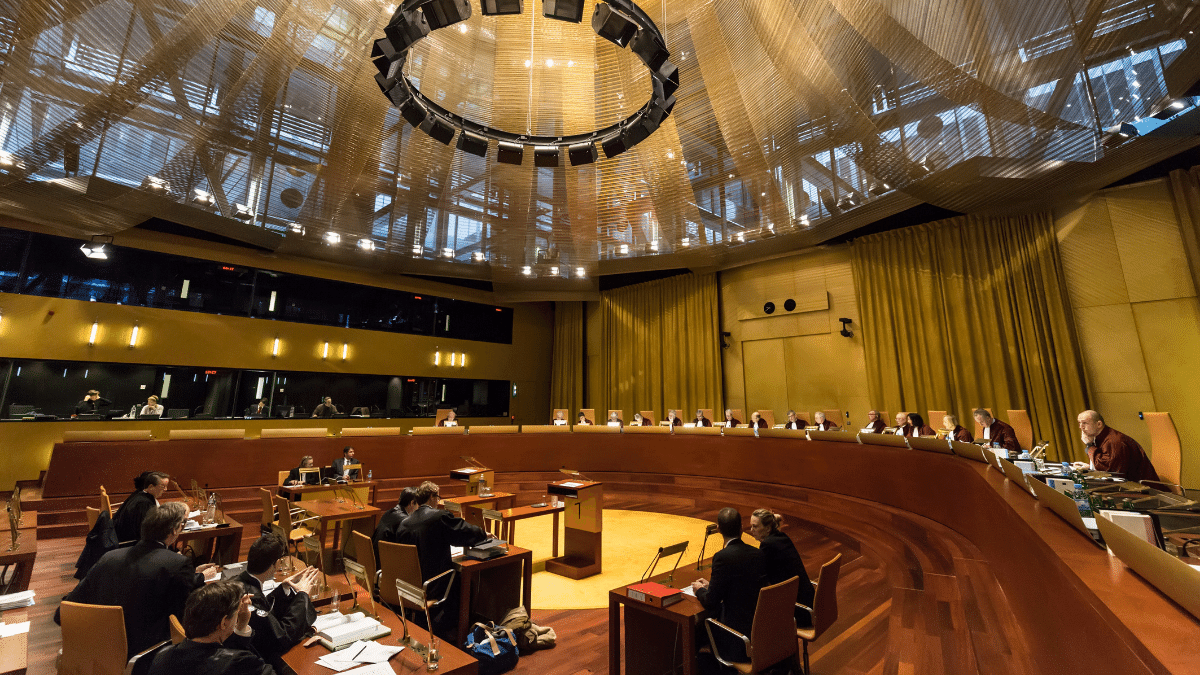
Advocate General of the Court of Justice of the European Union’s opinion says that Bulgaria’s lack of recognition for same-sex parented families cannot justify a violation of EU freedom of movement law
Leading LGBTI rights organisations in Europe are very encouraged by the Advocate General of the Court of Justice of the European Union’s (CJEU) opinion, published yesterday in the case of V.M.A. v Stolichna obshtina, in which a same-sex couple who were refused a birth certificate in Bulgaria for their newborn daughter claim the Bulgarian authorities are violating the rights of a European citizen on the grounds of sexual orientation, namely to free movement, and to private and family life. This constitutes a breach of the fundamental principles of the EU.
The Advocate General (AG) clearly states that the refusal of the Bulgarian authorities to draw up the requested birth certificate constitutes an impediment to the rights which EU law confers on V.M.A. and that child.
According to the AG, the obligation to recognise the family relationships, which are established in Spain, for the sole purpose of applying the EU right to freedom of movement of citizens does not alter the concept of parentage or marriage under Bulgarian family law, and thus does not threaten the fundamental expression of national identity, while removing a significant number of the obstacles to freedom of movement, such as the uncertainties surrounding the right of residence of the child’s British mother or the possibility for that mother to move freely with the child.
Having regard to the limited impact of that obligation on the Bulgarian legal order, the refusal to recognise the parentage of the child as regards V.M.A. and her wife for those purposes goes beyond what is necessary to preserve the objectives relied on by Bulgaria. Bulgaria thus may not refuse to recognise the parentage of the child for the purpose of applying the EU secondary law relating to the free movement of citizens on the ground that Bulgarian law does not provide for either the institution of same-sex marriage or the maternity of the wife of a child’s biological mother if the child is a Bulgarian national.
According to Katrin Hugendubel, Advocacy Director of ILGA-Europe: “The opinion is pointing in the right direction, as it clarifies that parentage established in one member state must be recognised for reasons of freedom of movement across the EU, and all EU citizens and their families equally enjoy freedom of movement. As already confirmed in Romanian Coman case, arguments on “national identity”, namely that Bulgaria does not recognise rainbow families, cannot justify a violation of EU law.”
Eleni Maravelia, President of NELFA, the Network of LGBTIQ* Families Associations, says: “NELFA is very pleased with the opinion of the AG, who is giving a clear answer to Bulgaria and all EU member states that EU law has to be respected at all times when dealing with cross-border issues, even when it comes to rainbow families with children who might not be covered by the national legislation. We are hoping the final decision by the court will take under consideration the AG opinion and build on it so to include the protection of the rights of the child.”
According to attorney, Denitsa Lyubenova, legal representative of the family and member of the Legal Programme of LGBTI Organisation, Deystvie: “We are still awaiting the ruling of the Court of Justice of the European Union, but we believe that the Advocate General’s opinion is a step forward recognising same-sex families across Europe. Law changes slowly, with small steps and a lot of perseverance. A ruling in the direction set by the Advocate General will bind Bulgaria to establish the family relationship between the child Sara and her two mothers. Maybe it all starts now.”
Further information:
- Read more about the case here.
How the EU Strategy on the Rights of the Child will protect LGBTI kids
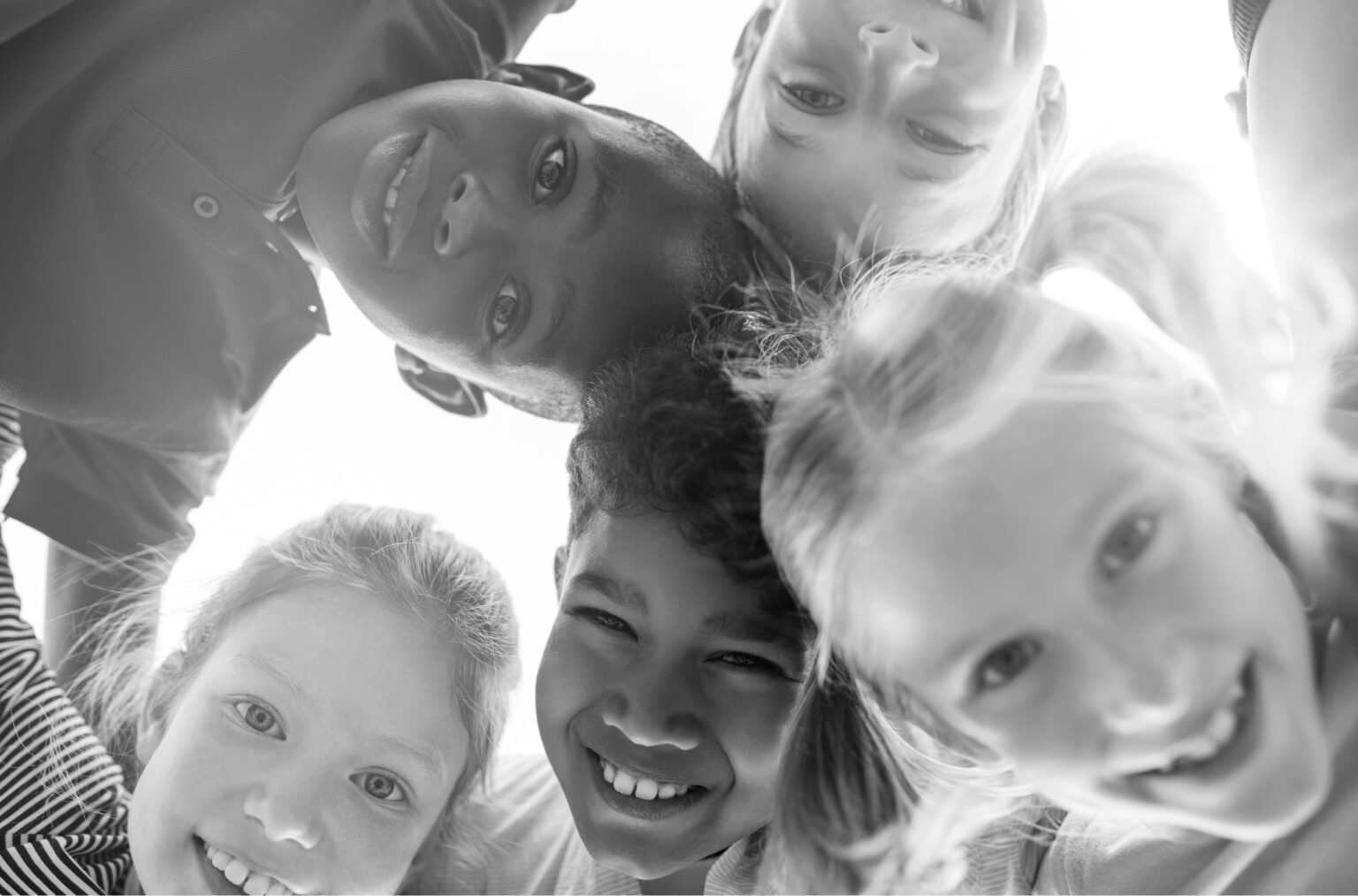
From committing to end intersex genial mutilation to improving freedom of movement for rainbow families, find out in our blog why this new EU strategy is great news for LGBTI kids.
“Children’s rights are human rights”.
On 24 March 2021, the European Commission published the EU Strategy on the Rights of the Child. Protecting and promoting the rights of the child is a core objective of the EU and therefore, the strategy aims to “build the best possible life for children in the EU and across the globe.” It strongly complements the EU LGBTIQ Equality Strategy 2020–2025, committing to clear actions to end intersex genital mutilation, tackle online bullying of LGBTI youth, and improve free movement for rainbow families.
Here are the key points of the strategy that focus on LGBTI kids:
It acknowledges the similarities between intersex genital mutilation and female genital mutilation
Intersex genial mutilation (IGM) and female genital mutilation (FGM) have, unfortunately, a lot in common. In the strategy the EC is explicitly acknowledging so by noting that “more than 200 million women and girls worldwide are survivors of FGM, including over 600.000 in the EU. 62% of intersex people who had undergone a surgery said neither they nor their parents gave fully informed consent before medical treatment or intervention to modify their sex characteristics.
To put an end to this, the key action by the EC will be to “support the exchange of good practices on ending non-vital surgery and medical intervention on intersex infants and adolescents to make them fit the typical definition of male or female without their or their parents’ fully informed consent (IGM).”
It will tackle cyber harassment of LGBTI children
Children experience violence at school and online. According to the 2018 PISA results, 23% of students reported being bullied at school. On cyber harassment, the strategy points out that “almost one third of girls and 20% of boys experienced disturbing content once a month in the past year; and children from minorities encounter upsetting events online more frequently.” The latest Fundamental Rights Agency survey on LGBTI people in the EU shows that amongst LGBTI 15–17 years old respondents, 15% have experienced cyber harassment due to their sexual orientation, gender identity, or sex characteristics.
To tackle this, the EC will update the Better Internet for Kids Strategy in 2022 in order to raise awareness of and build capacity around cyberbullying, recognise mis- and disinformation, and promote healthy and responsible behaviour online.
It will improve freedom of movement for rainbow families
The right to freedom of movement and residence of EU citizens is the cornerstone of the European Union, however, this is far from being true for rainbow families. A baby with two mothers is currently at risk of statelessness, and Clai Hamilton, spouse of Romanian Adrian Coman, has not been granted residency in Romania yet, after an European Court issued a landmark judgement in their favour. In the strategy, the EC proposes a horizontal legislative initiative for 2022 to support the mutual recognition of parenthood between EU countries.
With their first ever Strategy on the Rights of the Child, the European Commission has explicitly acknowledged the specific discriminations and challenges faced by LGBTI children. In addition to the above-mentioned points, the Strategy recognises the need to pay specific attention to LGBTI children in the areas of health, education, socioeconomic inclusion, housing and protection from discrimination, both online and offline.
ILGA-Europe will now work with our partners and the European Commission to ensure the implementation of commitments made in the Strategy to address these issues, and to ensure that solutions reach and include LGBTI children across Europe.
The shocking state of LGBTI children’s rights in Europe
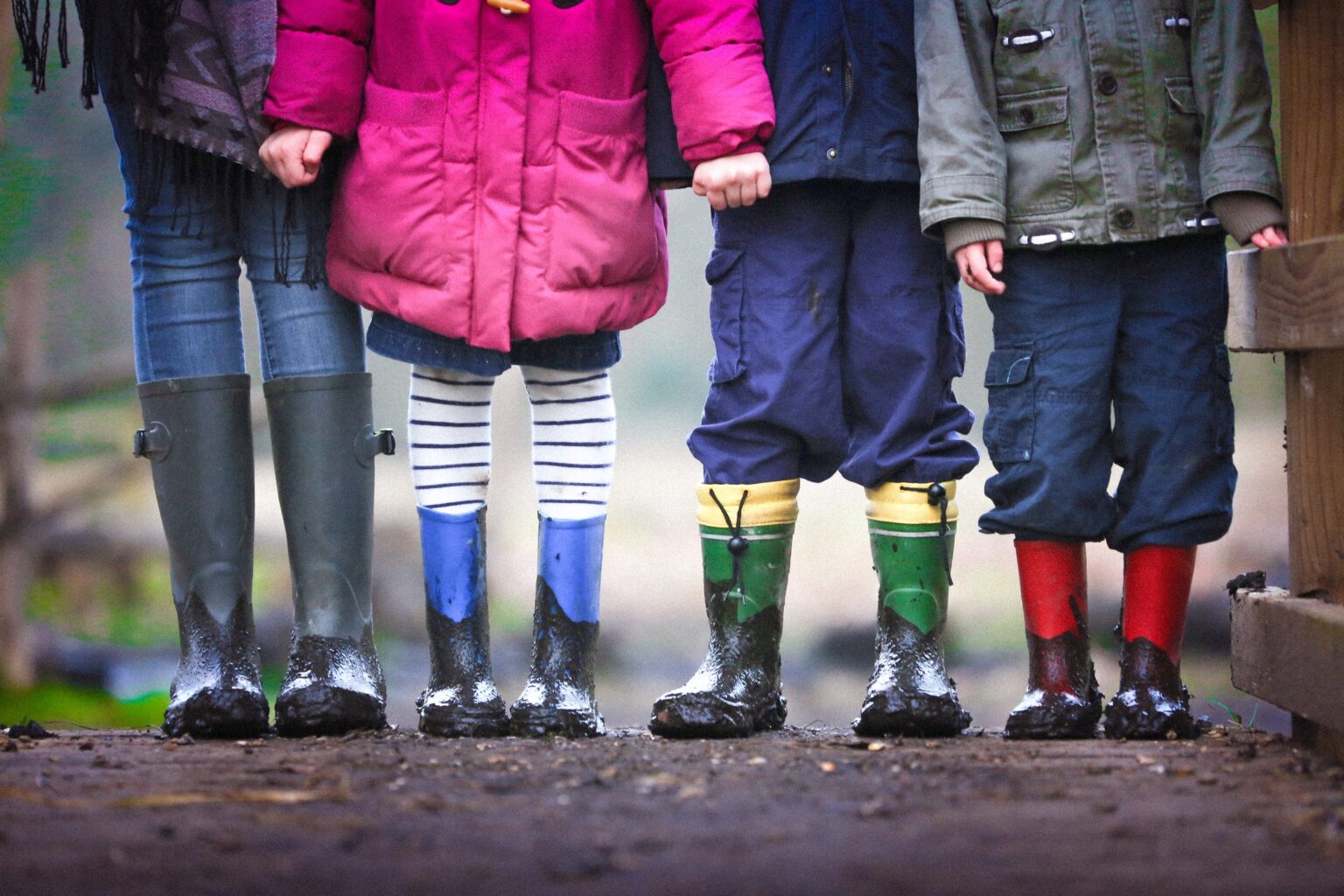
We expect all children to be protected from violence and discrimination, and to have access to appropriate legal protection, but in the EU the truth is far from this case, and LGBTI children are particularly vulnerable. Here’s why.
Children should be protected from all forms of physical or mental violence, according to the UN Convention on the Rights of the Child, the EU Charter of Fundamental Rights and the European Convention on Human Rights. However, LGBTI children and young people still face widespread discrimination and exclusion all across Europe. The COVID-19 crisis is making them more vulnerable to abuse and marginalisation.
LGBTI children, children perceived as queer, and those coming from rainbow families experience discrimination and violence at school for their gender and sexuality or that of their parents. Almost 6 in 10 students will hide that they are LGBTI, as observed in the latest Fundamental Rights Agency (FRA) survey on LGBTI people in Europe.
Sometimes, discrimination starts at home, where rejection from their families can lead to mental health problems, and often homelessness, as we have seen exacerbated by the COVID-19 crisis.
Trans young people are frequently denied legal recognition and access to transition-related healthcare, or face abusive requirements, while intersex children go through unnecessary and unconsented medical interventions, which can have life-long negative consequences, and are exposed to very high levels of stigma, which can lead to family violence, gaps in education, and homelessness.
Children in rainbow families are vulnerable
When LGBTI parents cannot get married or register their partnership, or when they cannot become parents legally, their children are left in precarious positions. If, for instance, the recognised parent dies, the child is left legally orphaned, and has no right to the care of their other unrecognised parent. This lack of legal recognition of parenthood deprives the child and their parents of various rights such as inheritance rights, the right to parental leave, visitation rights, pension rights, and the right to alimony, and can result in some children being left undocumented and at risk of statelessness.
Same-sex parents and trans parents aren’t recognised
In 12 EU countries, same-sex parents are unable to get married, and in six EU countries same-sex relationships cannot be recognised at all (Bulgaria, Latvia, Lithuania, Poland, Romania and Slovakia). Registered partnerships allow parental rights in some countries but not in others.
Recognition of trans parents is especially complicated. In many cases, there are not clear regulations and individual family situations are decided on a case-by-case basis. In just four EU countries, the recognition of trans men as fathers and trans women as mothers is fully accessible, while non-binary parenthood recognition is even more uncommon. Trans parents who cannot access legal gender recognition also cannot be recognised in their gender in relation to their children. Although legal gender recognition can be accessed in 41 countries in Europe, 20 of them require divorce before accessing it. 10 of these countries are in the EU.
In the remaining countries, parents who have their gender legally recognised may still not be able to be recognised as a parent in their gender, both when changing their legal gender before or after the registration of their child.
Trans children are left unprotected
The lack of inclusion of minors in legal gender recognition (LGR) processes or the creation of processes with additional requirements only applicable to minors (such as parental consent or judicial oversight) constitute discrimination on the basis of age and further marginalises trans children and adolescents. They are left unprotected and have a higher chance of facing discrimination in all areas of their lives.
Trans children also face additional barriers and discrimination when trying to access healthcare, particularly trans-specific healthcare, that may include counselling, hormone blockers and/or hormone replacement therapy. The FRA LGBTI survey shows that 17% of trans respondents aged 15 to 17 in the EU avoided healthcare services, while 15% have been the subject of inappropriate curiosity or comments from healthcare professionals. Discrimination in healthcare has devastating consequences on the physical and mental health of trans children, yet they and their parents often encounter prejudice, lack of information and appropriate care in general health services.
Intersex children are regularly mutilated and attacked
Intersex children are subjected to invasive medicalisation without informed consent. According to the FRA LGBTI survey, 62% of intersex respondents and their parents were not able to provide informed consent to a surgical intervention, while 49% did not provide consent for hormonal treatment. However, non-vital, non-emergency surgeries are regularly performed on intersex infants and children, and hormonal treatment is given in childhood, both of which often have devastating effects into adulthood.
At school, intersex children are subjected to physical and sexual attacks, hate-speech and bullying. The FRA survey shows that 14% of intersex children between 15 and 17 years old have experienced a physical attack in the 12 months prior to the survey and 39% of these attacks happened at school. 56% reported severe psychological problems as a result and 9% were hospitalised, making intersex children, together with trans children, the most vulnerable.
All children have the right to protection and care
Article 24 of the EU Charter of Fundamental Rights states that “children shall have the right to such protection and care as is necessary for their well-being”. It also states that actions relating to them should be taken in the child’s best interest and that every child has the right to be in regular contact with their parents, unless it is contrary to the child’s interest. As with every child, LGBTI children should be able to enjoy these inalienable rights, and deserve to grow up in a world that values and cherishes them and their families equally.
European Court must rule in favour of a child at risk of statelessness and her family’s freedom of movement in the EU, say leading LGBTI rights organisations
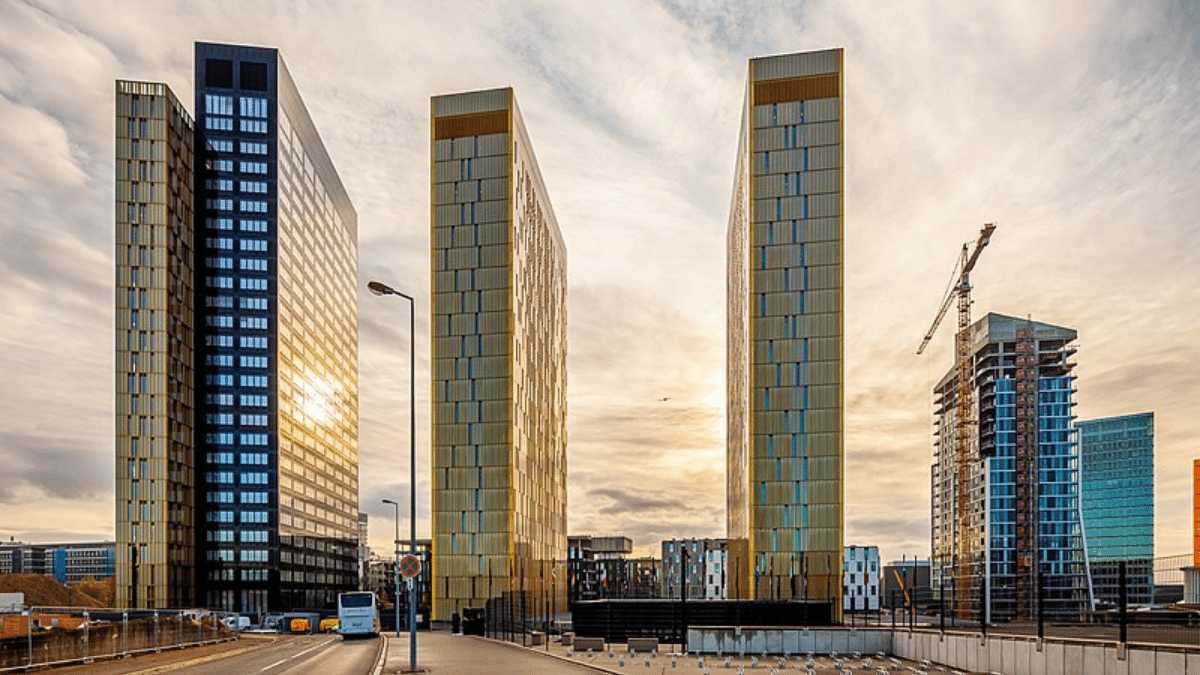
Authorities in Bulgaria have not recognised the valid EU birth certificate of the child of a same-sex couple. On February 9, the Court of Justice of the European Union must clarify that if you are a parent in one EU country, you are a parent in every EU country.
On Tuesday, February 9, the Court of Justice of the European Union (CJEU) will hear the case of a same-sex couple who were refused a birth certificate in Bulgaria for their newborn daughter. The authorities claimed that a same-sex couple cannot be registered as parents on the birth certificate. ILGA-Europe have been supporting Bulgarian LGBTI rights organisation, Deytsvie in bringing the case forward and is, through their campaign #parentswithoutborders, raising awareness of the lack of protection of same-sex parents and their children within the EU.
Bulgarian born Kalina Ivanova* and Gibraltar-born Jane Jones* are the mothers of Sara, who was born in Spain in 2019. Under current Spanish law, the child could not acquire Spanish citizenship because neither Kalina or Jane is a Spanish citizen. The child was also denied British citizenship because Jane was born in Gibraltar of British descent, and under the British Nationality Act (1981), cannot transfer citizenship to her daughter.
Therefore, Kalina requested Bulgarian citizenship for their daughter. Bulgarian authorities rejected the application, arguing that a baby cannot have two mothers, and refused to issue a birth certificate in which the parents are two persons of the same sex.
Sara has been deprived of Bulgarian, and therefore European citizenship, and is at risk of statelessness. At the moment, the child has no personal documents and cannot leave Spain, the country of the family’s habitual residence. The lack of documents will restrict Sara’s access to education, healthcare, and social security.
According to the case taken to the CJEU, the Bulgarian authorities are violating the rights of a European citizen on the grounds of sexual orientation, namely to free movement, and to private and family life. This constitutes a breach of the fundamental principles of the EU.
In Bulgaria, same-sex marriages and same-sex registered partnerships are not recognised.
According to Denitsa Lyubenova, attorney-at-law and co-founder of Deytsvie: “Countries in Central and Eastern Europe are derogating from basic human rights guaranteed by the European Convention on Human Rights and the Charter of the Fundamental Rights of the EU. This weakens the EU position as a guardian of human rights. With this case we have the chance to realign the practice in EU countries with the principles set out in the EU Treaties and to protect the rights of LGBTI families and their children moving across Europe. and the Court needs to reconfirm that Rainbow families are as valid as all others.”
Arpi Avestisyan, Head of Litigations at ILGA-Europe added: “In her State of the Union 2020 address, President Ursula von der Leyen said: ‘If you are parent in one country, you are parent in every country’. However, thousands of same-sex parented families in the EU currently live at risk of not having the parental relations recognised and face legal turmoil due to differences in member states’ national systems.”
Avestisyan continued: “Parents cease to exist when moving from one EU member state to another, where birth certificates from another member state are not recognised. These situations create severe obstacles for children in exercising the rights to which they are entitled under European and international law.
“Through this case, the CJEU has the opportunity to clarify that parentage established in one member state must be recognised across the EU, and all EU citizens and their families equally enjoy freedom of movement. As already confirmed in Romanian Coman case, arguments on “constitutional identity”, namely that Bulgaria does not recognise rainbow families, cannot justify a violation of EU law.”
*Names have been changed.
“If You Are Parent in One Country, You Are Parent in Every Country”: But still today a child can be stateless in the EU just because it has two mothers
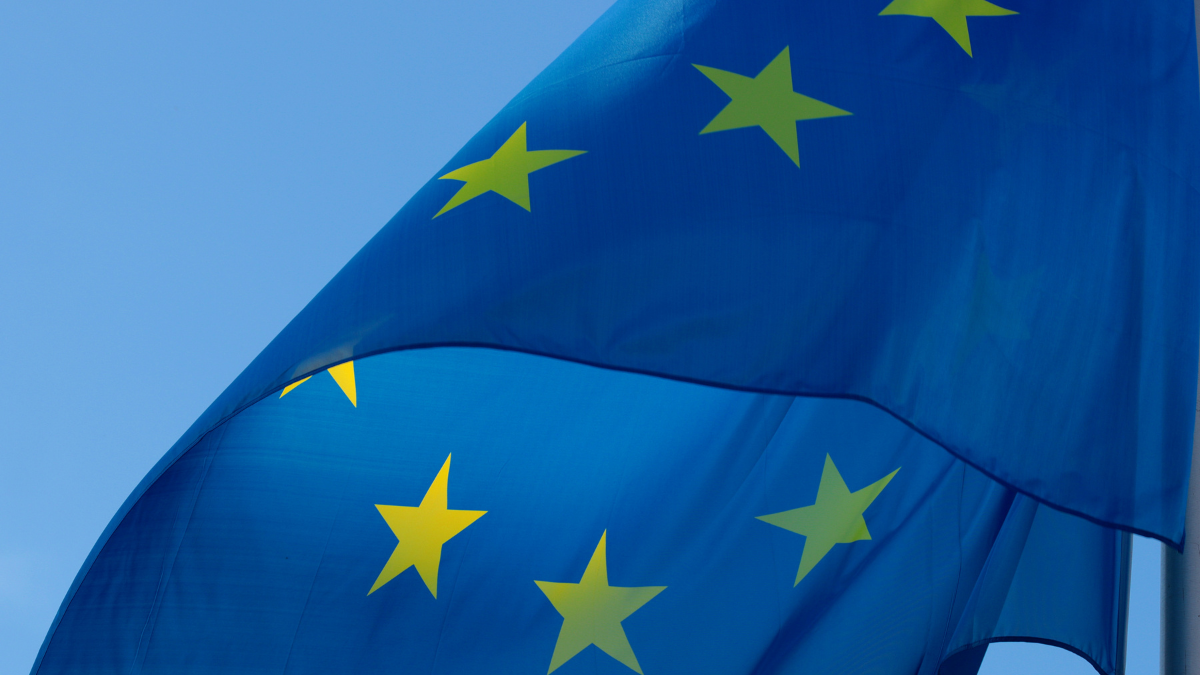
A baby born to two mothers, one from Gibraltar and one from Bulgaria, has become a test case at the European Court of Justice for the freedom of movement of rainbow families in the EU. Read on and find out how to join our campaign for parents without borders!
Born in the EU, Sara is the daughter of a Gibraltar-born mother and a Bulgarian mother. Under EU rules, baby Sara is a Bulgarian citizen. However, Bulgarian authorities do not believe that a child can have two mothers and have denied citizenship to Sara, putting her at risk of statelessness. The Court of Justice of the European Union in Luxembourg will hear Baby Sara’s case on February 9. It is a unique opportunity for the court to take a stand in support of rainbow families and their right to free movement.
“If you are parent in one country, you are parent in every country” said Ursula von der Leyen, President of the European Commission, in her address of the State of the Union in September 2020. However, this is not the reality for many rainbow families, and it has certainly not been the case for baby Sara and her parents so far. Through this case, the Court of Justice of the European Union (CJEU) has the chance to help make President von der Leyen’s words a reality for all families in the EU.
The story of Baby Sara’s family
Kalina* and Jane* got married in 2018 in Gibraltar, Jane’s birthplace. Kalina is from Bulgaria, a member state of the EU. Because it is part of the United Kingdom, since January 1 of this year, Gibraltar has exited the EU.
Baby Sara was born in December 2019 in Spain. Like Bulgaria, Spain is a member state of the EU. Sara’s birth certificate lists Kalina and Jane as her mothers. However, under the national laws of Spain and the UK, Sara could not become a citizen in either country. Not in Spain, because neither of her mothers have Spanish citizenship, and not in the UK, as Jane, who was born of British parentage in Gibraltar, could not transfer British citizenship to Baby Sara, who was born outside the UK.
Therefore, Kalina requested Bulgarian citizenship for their child. Bulgarian authorities rejected the application, arguing that a baby cannot have two mothers, and refused to issue a birth certificate in which the parents are two persons of the same sex. In Bulgaria, same-sex marriages are not allowed. As a result, Sara has no personal identification documents and cannot leave Spain, where the family currently lives.
In the long run, Sara is at risk of statelessness. Without documents, she will not be able to attend school. Kalina lodged a claim against Bulgarian authorities before the Administrative Court of Sofia, which in turn referred four questions to the CJEU asking for clarification. The CJEU will hold a hearing in this case on February 9 by the Grand Chamber, composed of 15 judges.
Why the court should judge in Baby Sara’s favour
“All EU citizens and their families have the right to enjoy freedom of movement,” says Arpi Avetisyan, Head of litigations at ILGA-Europe. “Article 21 of the Treaty on the Functioning of the European Union states that all EU citizens and their family members have the right to move and reside freely within the EU. Through this case, the CJEU has the opportunity to clarify that parentage established in one member state must be recognised across the EU.
“In 2018, the CJEU delivered a judgement on the Coman case, saying that the definition of ‘spouse’ in EU law on freedom of movement includes same-sex couples. Therefore, “arguments on ‘constitutional identity’, namely that Bulgaria does not recognise rainbow families, cannot justify a violation of EU law.”
Severe obstacles for children
Unfortunately, Sara’s situation is not an isolated case. According to Arpi, it is representative of what many rainbow families experience across the EU. “Parents cease to exist when moving from one EU country to another, where birth certificates from another member state are not recognised. These situations create severe obstacles for children in exercising the rights to which they are entitled under European and international law. Among others, the Convention on the Rights of the Child (CRC) is violated, restricting access to education, healthcare, and social security.”
The CJEU must clarify that if you are a parent in one EU country, you are a parent in every EU country. Help make this a reality by joining our #parentswithoutborders campaign!
Share this gif on your social media, with the message:
Authorities in #Bulgaria are not recognising the valid #EU birth cert of the child of a same sex couple. On Feb 9 the CJEU must clarify that if you are a parent in one EU country, you are a parent in every EU country #ParentsWithoutBorders
Click below to instantly tweet this message!
Authorities in #Bulgaria are not recognising the valid #EU birth cert of the child of a same sex…
*Names have been changed
Joint statement: Dark day for LGBTI community in Hungary as homophobic discriminatory bill and constitutional amendments are passed
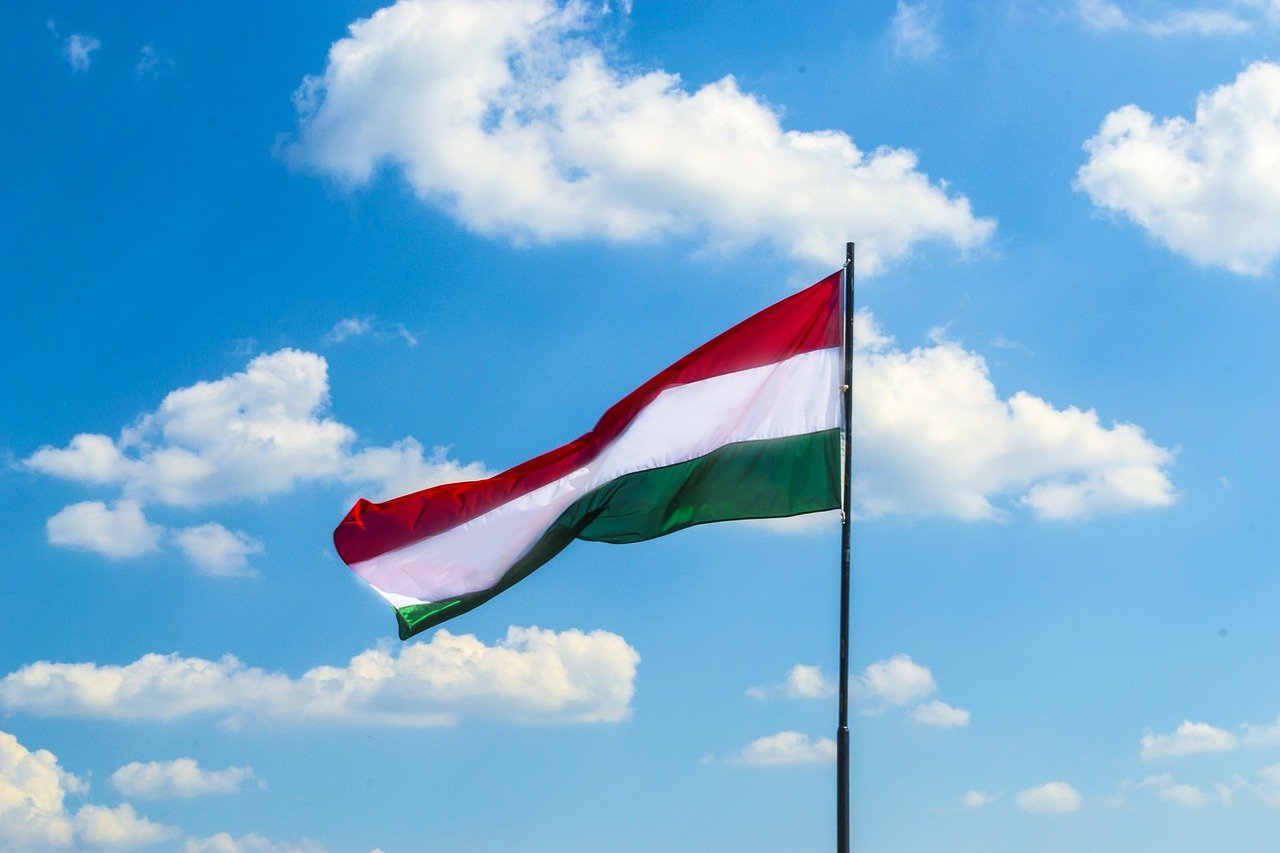
Reacting to the Hungarian parliament’s decision to adopt a law that will strip non-married couples of the right to adoption and two constitutional amendments which further restrict the rights of LGBTQ people, leading human rights organisations have come together to condemn the decision.
David Vig, Director of Amnesty Hungary, said: “This is a dark day for Hungary’s LGBTQ community and a dark day for human rights. These discriminatory, homophobic and transphobic new laws – rushed through under the cover of the coronavirus pandemic – are just the latest attack on LGBTQ people by Hungarian authorities.”
Katrin Hugendubel the Advocacy Director at ILGA-Europe said: “These bills further restrict the rights of LGBTI children and parents in Hungary. LGBTI children will be forced to grow up in an environment which restricts them from being able to express their identities, and children across Hungary will be refused safe and loving families, as adoption is restricted only to married heterosexual couples. This attempt to rush through these discriminatory, homophobic and transphobic new laws are part of an ongoing attack on LGBTI people by Hungarian authorities.”
Masen Davis, Executive Director at Transgender Europe said: “Earlier this year, Hungary made it impossible for trans people to change their names and legal gender marker. We are deeply concerned for the health and safety of trans children and adults in Hungary in such a hostile climate. We call upon EU Commission President von der Leyen to address the rights of LGBT parents, the attempt to erase gender diverse children, and the ban on legal gender recognition in the Commission’s rule of law assessment and on-going Article 7 TEU proceedings against Hungary.”
Background:
The Hungarian Parliament passed a bill prohibiting adoption for non-married couples and amend the Constitution stating that “mother is a female and father is a male” and that Hungary “protects self-identity of the children’s sex by birth” which would further stigmatize the transgender and intersex people in Hungary.
Schlittner-Hay v. Poland
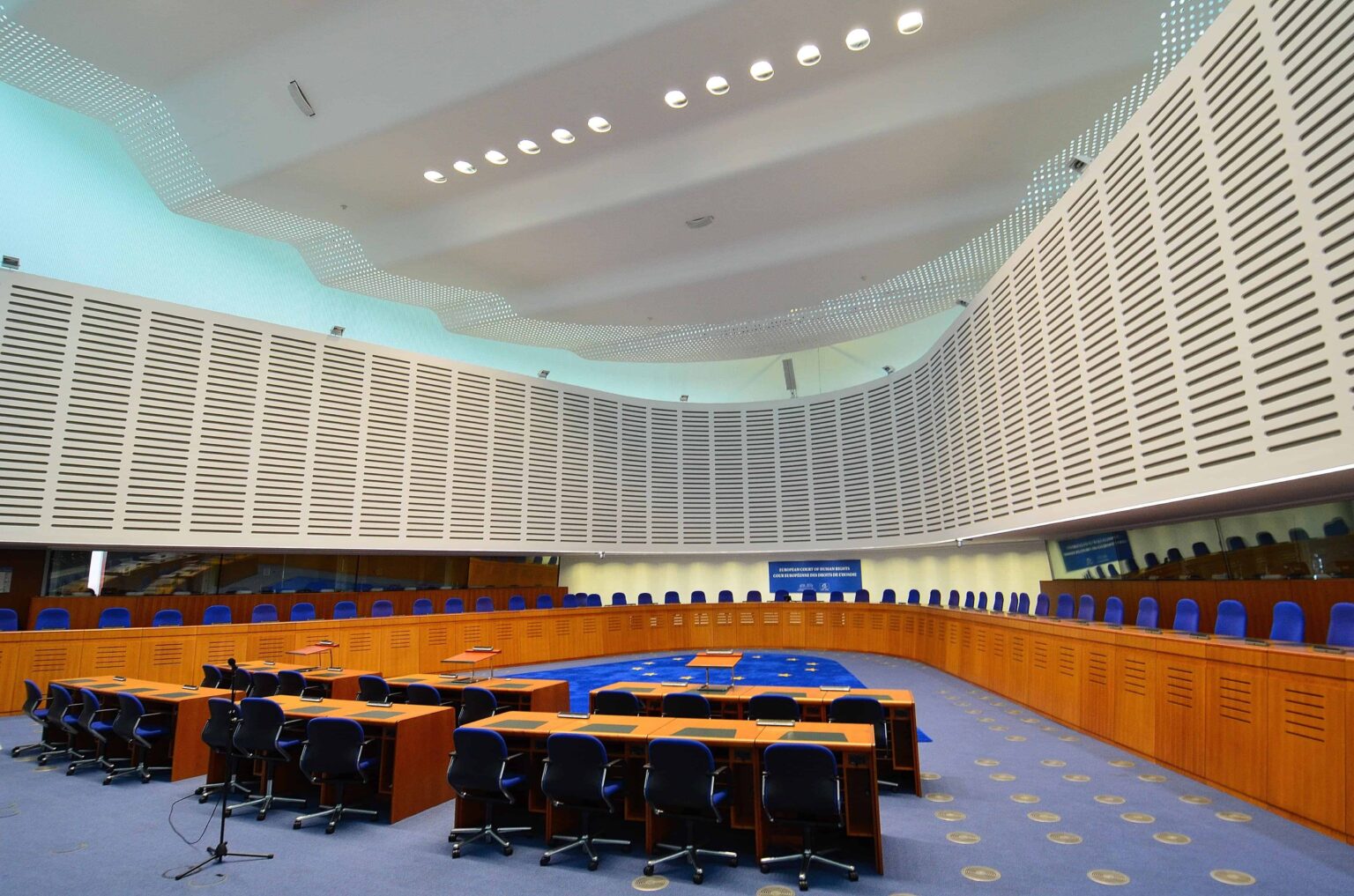
Rainbow family and children rights
(Apps no. 56846/15 and 56849/15), 23 July 2019
Find here the communicated case.
- The applicants – two twins born through surrogacy – complain that despite the fact that their biological father Mr S. is a Polish citizen, they were refused Polish citizenship by descent on the ground that their birth certificate indicated two men as their parents.
- ILGA-Europe together with the CRIN, the HFHR, the NELFA and the Polish Society of Anti-Discrimination Law submitted the following:
- The best interests of the child shall be a primary consideration in all actions concerning children. According to the ECtHR, parent-child relationships fall within the ambit of family life covered by Article 8. Refusal by State authorities to recognise existing family ties established under foreign law generally establishes interference in family life as well as private life.
- According to the Supreme Administrative Court of Poland (SAC), the fact that the child was born by a surrogate is irrelevant for his/her legal status since every child has the right to citizenship if one of his/her parents is a Polish citizen. National Courts similarly held that the established de facto relations between adults and the minor in whose family this is created must be established, promoted, protected and integrated, all in the best interests of the child.
- Sexual orientation is a prohibited ground of discrimination under Article 14 ECHR. Accordingly, the children of rainbow families should not be “penalised in [their] daily existence” simply because of their association with their parents because of their sexual orientation.
X. v Poland

Custody rights
(Application no. 20741/10), 19 July 2019
Find here the communicated case.
- Following a divorce, a mother was denied custody of her three children on grounds of her sexual orientation.
- ILGA-Europe together with FIDH, ICJ, KPH and NELFA submitted the following:
- The ECtHR expressly stated that the concept of one’s sexual orientation is a prohibited ground of discrimination under Article 14 ECHR and discrimination on this ground is considered ‘suspect’ and subject to ‘particularly severe scrutiny’. The Court has confirmed that parent-child ties and custody cases fall under Article 8, and applies to LGBTI parents’. In Salgueiro da Silva Mouta v. Portugal, the ECtHR considered that the refusal to grand custody over the child based on the applicant’s sexual orientation constituted a violation of Article 8 in conjunction with Article 14. The IACtHR reached the same conclusion in Atala Riffo y Ninas v Chile, where custody rights were denied to the mother due to her sexual orientation. A number of national courts in Europe and internationally have considered the custodial rights of gay and lesbian parents, affirming their right to equal access to children without discrimination based on sexual orientation.
- This case provides the Court with the opportunity to reaffirm its findings made in Salgueiro da Silva Mouta v. Portugal and confirm rights of parents irrespective of their sexual orientation or gender identity and expression to equal access to custody of their children.
The Rights of Children Raised in Lesbian, Gay, Bisexual or Transgender Families
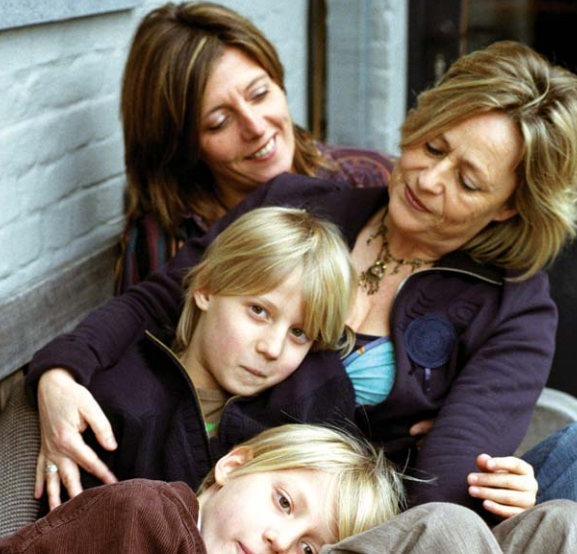
A European Perspective
This report documents the existing framework of legal protection of the rights of children in LGBT families at European level, analyses the many gaps in their protection, and makes recommendations for addressing these.
Different Families, Same Rights?
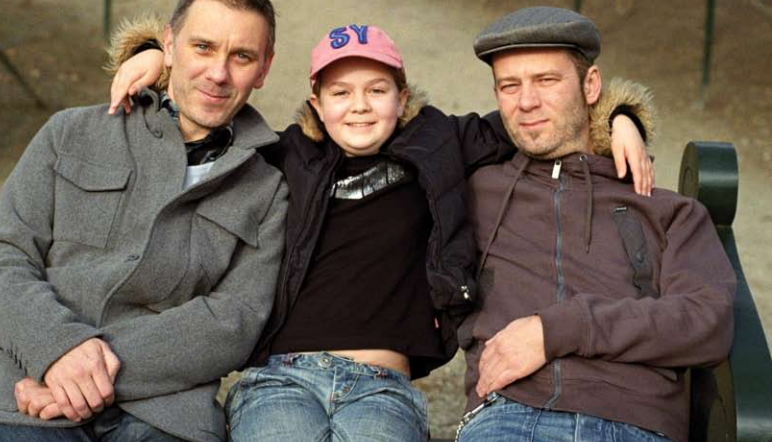
The recognition of lesbian, gay, bisexual and transgender (LGBT) families is one of the main focuses of ILGA-Europe’s work. We work for the elimination of discrimination in law, policies and practices relating to any form of partnership or parenting (including marriage, partnership, reproductive rights, adoption and parental responsibility): in particular, the elimination of restrictions on the rights and responsibilities of parents based on sexual orientation, gender identity and gender expression.
Most importantly, the rights of the child are at the core and guide ILGA-Europe’s demands for recognition of diverse families.
This publication is the second of a collection of booklets related to different aspects of LGBT families ranging from social and legal issues to more practical consequences of the non-recognition of LGBT families. It focuses on the implications the Hague Programme has for LGBT families in the areas of freedom and justice.
Families, Partners, Children and the European Union
ILGA-Europe’s policy paper on how various aspects of EU law are impacting upon national rules relating to ‘personal status’ in its broader sense.
This Policy paper is available in 5 languages.
Issues such as marriage, partnership and parenting have been traditionally treated as falling within national legal competence and hence outside the powers of the European Union. However, this situation is now rapidly changing. The boundaries between national and EU competences have gradually blurred over time.
The Union is now committed to promoting social inclusion through policies in a wide range of fields such as employment, education, healthcare and housing. Moreover, the creation of the “Area of Freedom, Security and Justice” has demanded much greater involvement of the Union in the coordination of civil law systems, including family law. In this policy paper, we examine how various aspects of EU law are impacting upon national rules relating to “personal status” in its broadest sense.